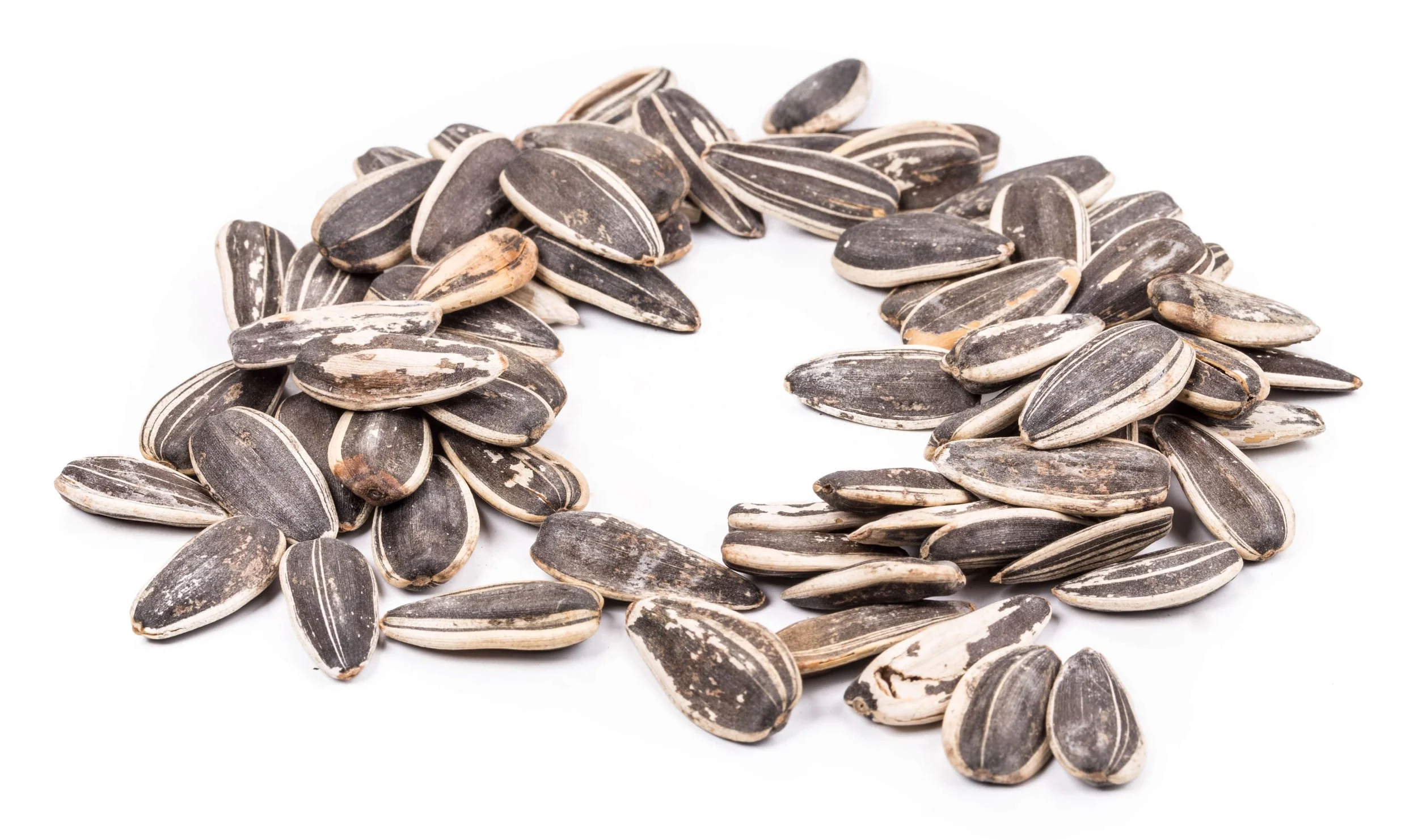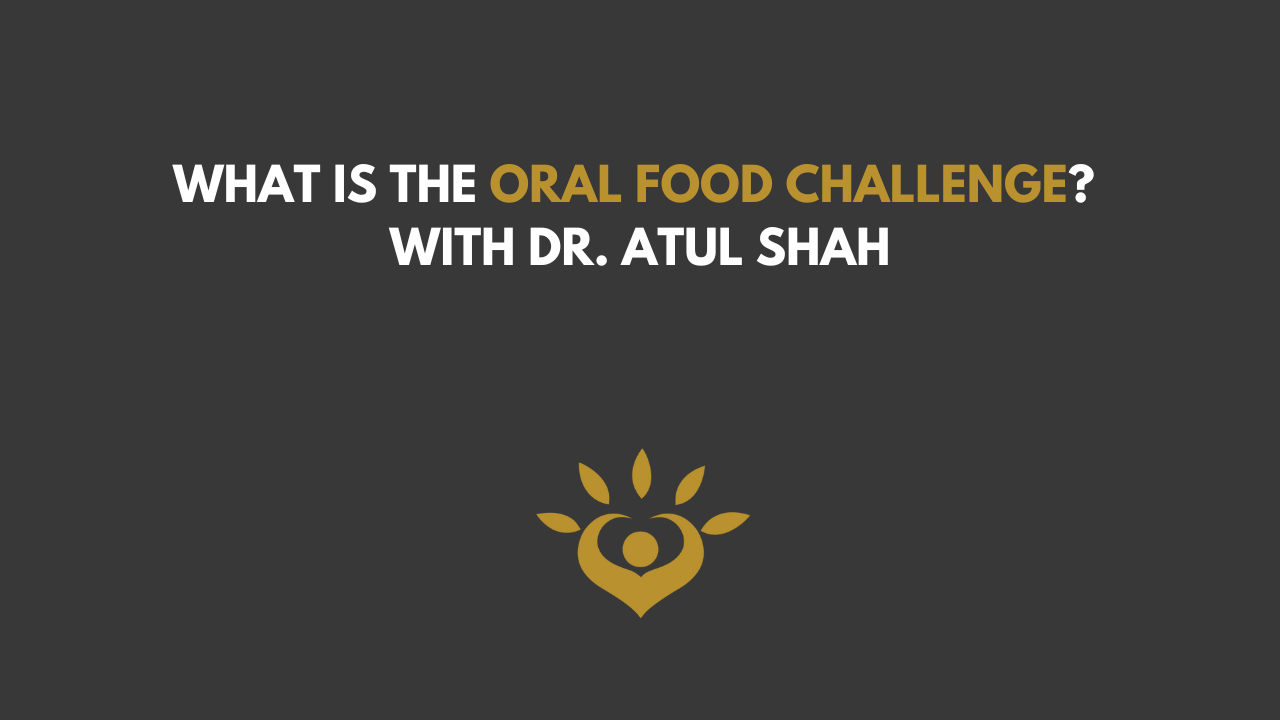Sunflower Seed Allergy
Treatment & Testing
Sunflower Seed Allergy Treatment in NYC, Manhattan, Upper East Side
Sunflower seed allergies, while less common than some other seed allergies, can still pose a significant risk for those affected. Dr. Atul Shah and the team at NY Food Allergy & Wellness are experienced in diagnosing and managing sunflower seed allergies with individualized care and innovative treatments. Sunflower seeds are often used in a variety of foods, making proper diagnosis and ongoing management essential.
Understanding Sunflower Seed Allergies
A sunflower seed allergy occurs when the immune system mistakenly identifies proteins in sunflower seeds as harmful, triggering an allergic reaction. Unlike other allergies, sunflower seed reactions may vary in severity and are sometimes associated with cross-reactivity with other seeds like flaxseed, pumpkin seeds, or sesame. Sunflower pollen allergens can cross-react with other members of the Asteraceae family, such as ragweed, goldenrod, dandelion, chrysanthemum, and ambrosia. The strongest cross-reactivity is between sunflower pollen allergens and sagebrush. The actual relation between sunflower seed allergy and sunflower pollen allergy is unclear.
Symptoms and Diagnosis of Sunflower Seed Allergies
Common symptoms of sunflower seed allergies include:
Skin Reactions: Itching, hives, swelling
Respiratory Issues: Sneezing, wheezing, nasal congestion
Gastrointestinal Problems: Stomach cramps, nausea, vomiting
Anaphylaxis: Severe cases may lead to life-threatening reactions requiring emergency medical treatment
Food Allergy
Testing for Sunflower Seed Allergies
Source: Lincoln Diagnostics
-
Skin prick tests are a quick and effective way to identify specific allergens. During the test, a small amount of allergen is placed on the skin, which is then gently pricked to allow the allergen to enter. Results are typically visible within 15-20 minutes, making it a fast and reliable option. Needle-free tests are ideal for children and needle-phobic patients. Using advanced technology, these tests provide precise results without the discomfort associated with traditional testing methods.
-
Blood tests are highly accurate and comprehensive, suitable for all age groups. They measure the presence of specific IgE antibodies in the blood, which can indicate an allergy. This method is particularly useful for patients who cannot undergo skin testing.
-
At NY Food Allergy & Wellness, we are proud to offer the Basophil Activation Test (BAT), a cutting-edge diagnostic tool for identifying food allergies. This advanced test measures the activation of basophils, a type of white blood cell, in response to allergens. The BAT provides highly accurate results and can detect allergic reactions that might not be identified through traditional testing methods.
We are the only certified lab in the region offering the Basophil Activation Test. Our certification ensures that we maintain the highest standards of accuracy and reliability in our testing procedures. By choosing NY Food Allergy & Wellness for your allergy testing needs, you can be confident that you are receiving the most advanced and reliable diagnostics available.
The Basophil Activation Test is particularly useful for patients who have complex allergy profiles or who have not found answers through conventional tests. It can also be used to monitor the effectiveness of ongoing allergy treatments, providing valuable insights for personalized care plans.
Key benefits of the Basophil Activation Test include:
High Accuracy: Detects allergic reactions that may not be visible through skin prick or blood tests.
Comprehensive Analysis: Measures the specific activation of basophils, providing detailed information about allergic responses.
Certified Lab: Conducted in our certified lab, ensuring the highest standards of testing quality and reliability.
If you suspect you have a food allergy and need precise and reliable testing, the Basophil Activation Test at NY Food Allergy & Wellness is an excellent choice. Contact us today to learn more about this innovative test and to schedule your appointment. -
Oral Food Challenges are considered the gold standard for diagnosing food allergies. During an OFC, the patient consumes small amounts of the suspected allergen under strict medical supervision to observe any reactions. This method provides definitive results and is conducted with the utmost care and safety.
Source: Lincoln Diagnostics
The FATE™ Program
Food Allergy Tolerance Enhancement
PHASE 4
Sublingual or Oral
Immunotherapy
PHASE 3
Oral Food
Challenges
PHASE 5
Bite Proof to
FREE Eating
Understanding the FATE™ Program with Dr. Atul Shah
Dr. Atul Shah explains key components of the FATE™ program in a series of videos, including topics like "What is an Allergy?", "What is the Oral Food Challenge?", and "What is Oral Immunotherapy?". These videos provide essential insights into advanced food allergy treatments available in NYC, emphasizing the expertise of Dr. Shah and the comprehensive care offered at the Upper East Side clinic. This positions the clinic as a leading choice for anyone seeking a food allergist in NYC.
15,000 Success Stories
Click tabs to slide between info
BASOPHIL
ACTIVATION TEST
The Basophil Activation Test (BAT) is a blood test that measures the activation of basophils, a type of white blood cell, in response to specific allergens. This test is particularly useful in diagnosing food allergies.
Process: In BAT, basophils are isolated from a blood sample and exposed to potential allergens. If the patient is allergic to a specific substance, the basophils will activate, which is detected using flow cytometry.
Advantages: This test is highly sensitive and can help in cases where traditional skin or blood tests are inconclusive. It also poses minimal risk to the patient, as it is performed in vitro (outside the body).
NYAIRL & NYFA Connection: NYAIRL, associated with NY Food Allergy & Wellness (NYFA), is a leading research facility and the first and only laboratory in New York State with a CLIA-certified facility to offer BAT. This state-approved service places NYFA at the forefront of allergy research and treatment, ensuring highly accurate and risk-minimized diagnostic services for food allergies.
ORAL FOOD CHALLENGE
OFC is a medically supervised test to diagnose food allergies. It's considered the gold standard for allergy testing.
Process: During an OFC, the patient consumes gradually increasing amounts of the suspected allergenic food in a controlled setting. Medical staff monitor for any reaction.
Purpose: It's used to either confirm a food allergy diagnosis or to check if a patient has outgrown an allergy.
Safety: Given the risk of an allergic reaction, OFCs are always conducted in a clinical setting with emergency response capabilities.
SUBLINGUAL IMMUNOTHERAPY
SLIT is a form of immunotherapy where the patient is given small doses of an allergen under the tongue to boost tolerance to the substance and reduce symptoms.
Process: The treatment involves administering gradually increasing amounts of the allergen in liquid or tablet form under the tongue. The patient holds it there for a few minutes before swallowing.
Purpose: SLIT is primarily used for treating allergic rhinitis and asthma, and it's being explored for food allergies. It's a convenient alternative to allergy shots, as it can be self-administered at home.
Duration: Treatment typically spans over a few years, with the initial phase of dose escalation followed by a maintenance phase.
ORAL IMMUNOTHERAPY
OIT is a medical treatment for food allergies where the patient consumes small amounts of the allergenic food, with the amount gradually increased over time.
Process: The process begins with extremely low doses, followed by periodic and gradual increases, usually under strict medical supervision. This is continued until a maintenance dose is reached.
Objective: The goal of OIT is to desensitize the patient to the allergen, reducing the severity of reactions or helping them achieve tolerance.
Foods Treated: Commonly used for allergies to foods like peanuts, milk, eggs, and tree nuts.
FOOD ALLERGY SUCCESS STORIES
Browse through 100+ Videos & Media including Success Stories, FAQ’s, and News Interviews.
Wheat Allergy
Peanut Allergy
Milk Allergy
Dr. Atul Shah: Changing Lives through Food Allergy Desensitization
Dr. Atul Shah is the esteemed founder of NY Food Allergy & Wellness near The Upper East Side of Manhattan, known for his exceptional work in treating food allergies. His expertise is recognized with prestigious accolades, such as the Patients’ Choice Award, Top M.D. Accolades, and America’s Top Physician. As an innovator, Dr. Shah has expanded access to food allergy care globally through the Global Food Initiative, using advanced technology.
Expanding the Horizons
of Food Allergy Care
From his medical beginnings in India to his establishment of New York Food Allergy & Wellness on Long Island, Dr. Shah’s career has been a journey of impact and innovation. In 2023, he expanded his practice to Park Sixty, NYC, setting a benchmark for food allergy care with the introduction of groundbreaking treatments and patient-centered services.
About Dr. Atul Shah: Testimonials
Dr. Atul Shah Interview with Donna Drake
Food Allergy Success Story: Cameron
Managing Sunflower Seed Allergies in Daily Life
Living with a sunflower seed allergy involves more than avoiding whole seeds. At NY Food Allergy & Wellness, we offer strategies for safe living, including:
Reading Food Labels: Identifying hidden sunflower seed ingredients, which may appear in unexpected foods like snacks, spreads, and baked goods.
Safe Cooking Alternatives: Replacing sunflower oil with other safe cooking oils such as olive or canola oil.
Dining Out: Providing tips for communicating your allergy to restaurant staff and choosing safer menu options.
Emergency Preparedness: Ensuring you carry epinephrine and have a clear action plan for accidental exposure.
Common Foods Containing Sunflower Seeds:
Granola bars and snack foods
Breads and baked products
Some cooking oils
Sunflower seed butter and spreads
Processed and packaged foods
(Sources: Food Allergy Research & Education, American College of Allergy, Asthma & Immunology)
Managing Multiple Food Allergies
Achieving food allergy freedom, especially with multiple food allergies, is challenging but possible with the right care. At NY Food Allergy & Wellness, we specialize in comprehensive management and treatment to help patients achieve food allergy desensitization.
Diagnostic Approach
We begin with:
Detailed Patient History: Reviewing the patient’s medical history and symptoms.
Advanced Testing: Utilizing skin prick tests, blood tests, and the Basophil Activation Test to identify specific allergens and assess reaction severity.
Personalized Treatment Plans
Our customized plans aim for food allergy desensitization and may include:
Oral Immunotherapy (OIT): Gradually introducing allergens to desensitize the immune system.
Sublingual Immunotherapy (SLIT): Administering allergens under the tongue to build tolerance.
Medications: Antihistamines can relieve mild symptoms, while epinephrine is used for severe reactions like anaphylaxis. Omalizumab (Xolair) injections can be considered to reduce the risk or reactions.
Dietary Management: Guidance on safe food choices and avoidance strategies.
Emergency Preparedness: Training on using epinephrine auto-injectors and creating action plans for accidental exposures.
Continuous Support
Regular Follow-ups: Monitoring progress and adjusting treatment plans.
Patient Education: Providing resources and training for effective management.
Support Groups: Facilitating patient support groups for shared experiences and strategies.
Why Choose
NYFA?
Personalized Treatment Plans:
NYFA offers individualized care with personalized OIT, SLIT, BAT, and OFC treatments, ensuring each patient's unique needs are met for effective food allergy desensitization.
15,000 Success Stories:
With over 15,000 success stories, NYFA demonstrates a track record of helping patients achieve "Food Allergy Freedom," showcasing a high level of expertise and reliability.
Innovative FATE™ Program:
Our exclusive Food Allergy Tolerance Enhancement (FATE™) program guides patients to new beginnings, blending cutting-edge treatments with a holistic approach to food allergy management.
Experienced Leadership:
Under the leadership of Dr. Atul Shah, an award winning pioneer in food allergy treatment, NYFA offers expertise and dedication to advancing allergy care.
State-of-the-Art Facilities:
Equipped with the latest technology and modern facilities, NYFA creates a safe, luxurious, and comfortable environment for top of the line food allergy treatments.
Community and Advocacy:
NYFA is deeply involved in the food allergy community, advocating for awareness and providing resources to empower patients in their journey towards desensitization.

Upper East Side Location:
Award Winning Food Allergist in NYC
NYC Location
110 East 60th St.
Suite 708
New York, NY, 10022
Hours of Operation
Tuesday: 9am-5pm
Wednesday: 9am-5pm
Thursday: 9am-7pm
Friday: 9am-5pm
Saturday: 9am-2pm
Sunday/Monday: Closed
Locations We Serve
We proudly serve the following locations in NYC:
Manhattan, Upper East Side, Queens
Staten Island, Brooklyn, The Bronx
Midtown, SOHO, NOHO, Upper West Side
Central Park South, Sutton Place, Westchester, Upstate NY, Connecticut, New Jersey

SCHEDULE TODAY
SCHEDULE TODAY
Ready to take control of your food allergies? Let our premier allergists guide you. Book your appointment today and start your journey to freedom together!

Frequently Asked Questions
How common is a sunflower seed allergy?
Sunflower seed allergies are relatively uncommon but can still affect people with allergies to other seeds or pollen allergies. They are less prevalent compared to peanut and tree nut allergies but can cause serious reactions in those affected.
(Source: American College of Allergy, Asthma & Immunology)
Are sunflower seeds considered a nut allergy?
No, sunflower seeds are classified as seeds, not nuts. However, some individuals who are allergic to nuts may also have cross-reactivity to seeds.
(Source: Food Allergy Research & Education)
Who should not eat sunflower seeds?
People with a diagnosed sunflower seed allergy or those who experience oral allergy syndrome (OAS) due to pollen allergies should avoid sunflower seeds.
(Source: American Academy of Allergy, Asthma & Immunology)
Why do I feel weird after eating sunflower seeds?
Feeling "weird" may indicate an allergic reaction, intolerance, or oral allergy syndrome related to pollen allergies. It's advisable to consult an allergist if symptoms persist.
(Source: Food Allergy Research & Education)
Are sunflower seeds a histamine?
Sunflower seeds themselves are not high in histamine, but they may trigger histamine release in allergic individuals.
(Source: American College of Allergy, Asthma & Immunology)
How do you get rid of sunflower seed allergy?
While there is no immediate cure for sunflower seed allergy, the desensitization options with Sublingual Immunotherapy (SLIT) and Oral Immunotherapy (OIT) offered at NYFA help our patients get protection from accidental exposure reactions and free eating over time.
What is the best treatment for sunflower seed allergy?
The best treatment for sunflower seed allergies currently involves a combination of avoidance, emergency preparedness, and desensitization therapies such as Oral Immunotherapy (OIT). OIT gradually introduces small amounts of sunflower seed protein to desensitize the immune system, thereby reducing the severity of allergic reactions. At NY Food Allergy & Wellness, we provide a comprehensive treatment approach under our FATE™ Program, utilizing advanced diagnostic tools and personalized treatment plans to ensure the highest level of care and safety.
Currently, avoidance is a general recommendation, but several treatments can help manage the condition:
Avoidance: The primary treatment involves avoiding sunflower seeds and related products.
Medications: Antihistamines can relieve mild symptoms, while epinephrine is used for severe reactions like anaphylaxis. Omalizumab (Xolair) injections can be considered to reduce the risk or reactions. Read more.
Sublingual Immunotherapy (SLIT) and Oral Immunotherapy (OIT): These treatment options gradually introduce small amounts of sunflower seeds to desensitize the immune system over time. Doing the OIT with FDA-approved product is an effective option for peanuts but not available for sunflower seeds. At NYFA, we offer SLIT and OIT products for sunflower seeds and options based on patient needs (single vs. multi-foods) and family’s preference for safety and the most efficient way to get to freedom.
Why Choose NY Food Allergy & Wellness for Sunflower Seed Allergy Treatment?
NY Food Allergy & Wellness stands out for sunflower seed allergy treatment because of our:
Expertise: Led by Dr. Atul Shah, a leading expert in food allergy treatment and desensitization.
Innovative Therapies: Offering advanced treatments such as Sublingual Immunotherapy (SLIT) and Oral Immunotherapy (OIT) tailored to sunflower seed allergies. Biologic treatments are helpful as well.
Holistic Care: Personalized treatment plans and continued support to manage sunflower seed allergies effectively.
State-of-the-Art Diagnostics: Utilizing cutting-edge diagnostic tools to provide precise and trustworthy allergy testing.

















































